CHIEF EXECUTIVES must challenge bad behaviour which stops women and minorities from progressing, Indra Nooyi, the former CEO and chair of global company PepsiCo, has said.
Speaking at the GG2 Leadership Series last Tuesday (12), the first Asian woman to lead a Fortune 500 company warned that firms would lose the war on talent if they did not act immediately to stamp out racism and sexism.
“If the tone at the top accepts bad behaviour, if your HR department does not intervene when they see bad behaviour, then the company’s in trouble,” Nooyi told the audience.
“The CEO and the head of HR are also looking at it, and [it’s] not just delegated to a diversity officer. If the mainstream leaders look at it and want to do something about it, it works, and company cultures will change.”
Nooyi was in the UK to promote her memoir, My Life In Full: Work, Family,
and Our Future.
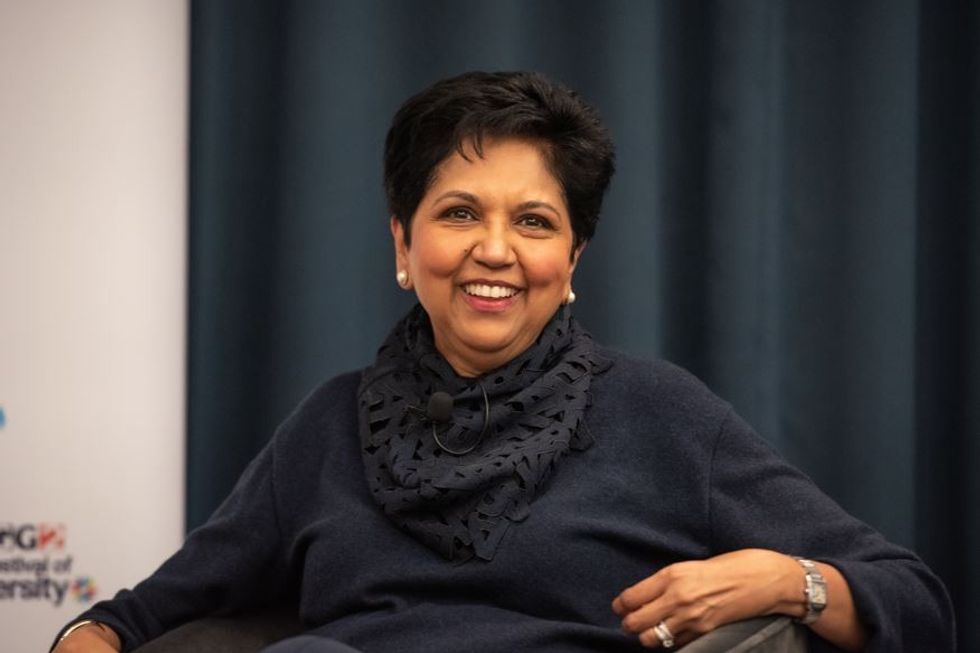
The Q&A event, organised by the Asian Media Group (AMG), publishers of the Eastern Eye and Garavi Gujarat news weeklies, was part of a series of interviews with global figures to nurture the next generation of Asian and black leaders.
The book charts Nooyi’s life, from growing up in Madras (now Chennai) a few years after India’s independence, to her climb to the top of the multi-billion-dollar American drinks and snacks empire.
During her tenure as CEO and chair, Nooyi put diversity in all its forms at the heart of everything she did, but she paid tribute to her predecessor, Steven Reinemund, for starting the journey.
“What he did was the best thing because he said, ‘you can’t create a diverse organisation and make people feel included unless you force numbers into the company’,” she said.
“So, he set up a scorecard which said, ‘parity hiring, parity promotion, parity retention. If you’re going to hire 10 people, five people are going to have to be diverse, go find them.’ He tied our bonuses to that scorecard.
“Not that we liked it, I’ll be honest with you, because it was very, very hard to hire people. But he said, ‘they’re out there, you just don’t look for them hard enough’.
“Once we got a critical mass of people, and we were diverse, we could build inclusion programmes on top of that diversity, and he watched everybody like a hawk.
“Steve did a brilliant job with that. I’ve got to give him credit because he set the stage for me.” For Nooyi, it was about going further and building a ‘talent pipeline’.
“Every job that was open, we made sure the slate was diverse. We publicly published goals on what percentage of senior management and the company was going to be people of colour or diverse people.
“We reported on progress in our reports every year, so the whole world knew exactly how we were doing.
“We were not always successful – sometimes we lost a person to some other company which raided us, which was inevitable,” she explained.
“But we were honest about that, too, and then we would go back and fill the pipeline. We built a talent pipeline, quite a good one.” And to build that pipeline, diversity was the number one priority.
“In today’s world, where there’s a war for talent, you need all the best and brightest people working in the company,” said Nooyi.
“You can’t afford to be too picky about one kind of race or gender to work in the company. You’ve got to go for the talent as opposed to trying to recruit somebody just like you.
“All of us know that having somebody just like you may make the decision process quicker, but not better.
“So, you’ve got to recognise that diversity around the table actually improves the decision making.”
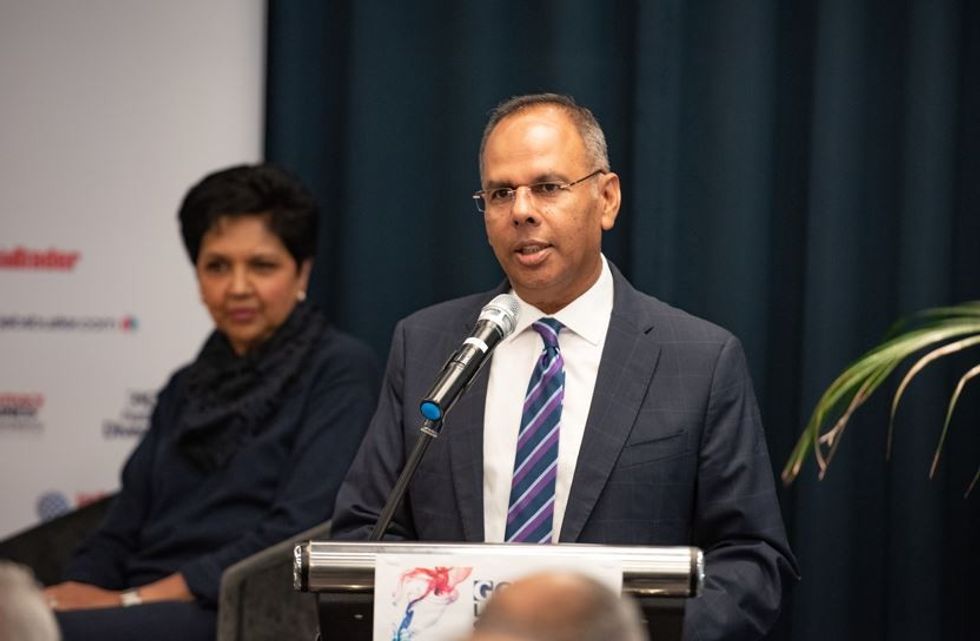
When Nooyi became CEO of PepsiCo, she was only one of 11 women leaders in the Fortune 500.
She acknowledged that was because of her immensely supportive husband, Raj, and her multi-generational family.
The cultural south Asian tradition of extended family helping and being supportive usually applies to the men. But in Nooyi’s case, everyone knew that she could not and should not be hampered because she was a woman.
“Decide for yourself whether you really want to make this journey,” she said when asked what advice she would give aspiring female leaders. “Because the organisation’s a pyramid that narrows enormously as it gets to the top.
“So, the journey is not easy, and if you want to make that journey while also having a family, better build a big support structure, and have incredible courage and resilience to go through the journey.
“Otherwise, it’s just not worth it.”
But that is not to say Nooyi was a hands-off mother. Far from it – she said she put in place a structure which made sure that her children knew their boundaries.
“Remember, those were the days where we didn’t have cell phones and texting and FaceTime, none of that stuff,” she recalled.
“The kids had rules on how long they could play Nintendo. They would call the office, I’d be in Japan or someplace, and the receptionist or the secretaries knew it was my daughter, because only they would call and say, ‘I want to talk to my mommy’ without explaining who they were.
“They would say, ‘Oh, hi, Tara, what’s up?’ [Nooyi’s daughter would say] ‘I want to play Nintendo.’ So, they had been trained to ask, ‘have you finished your homework?’ They would go through a checklist they had all been given, and because they were all women who had children, they knew what the drill was.
“Then they would leave me a voicemail saying, ‘Tara called, we went through these questions, we gave her permission to play Nintendo for half an hour.’
“So, when I called her, there had to be a seamless transition. I think it is impossible to juggle homework, children, all that stuff unless you have a support structure. Three strikes and you’re out.”
One negative aspect of leadership, especially for women and minorities, are micro-aggressions from men and white people, she explained. Nooyi faced unsupportive colleagues, some of whom humiliated her.
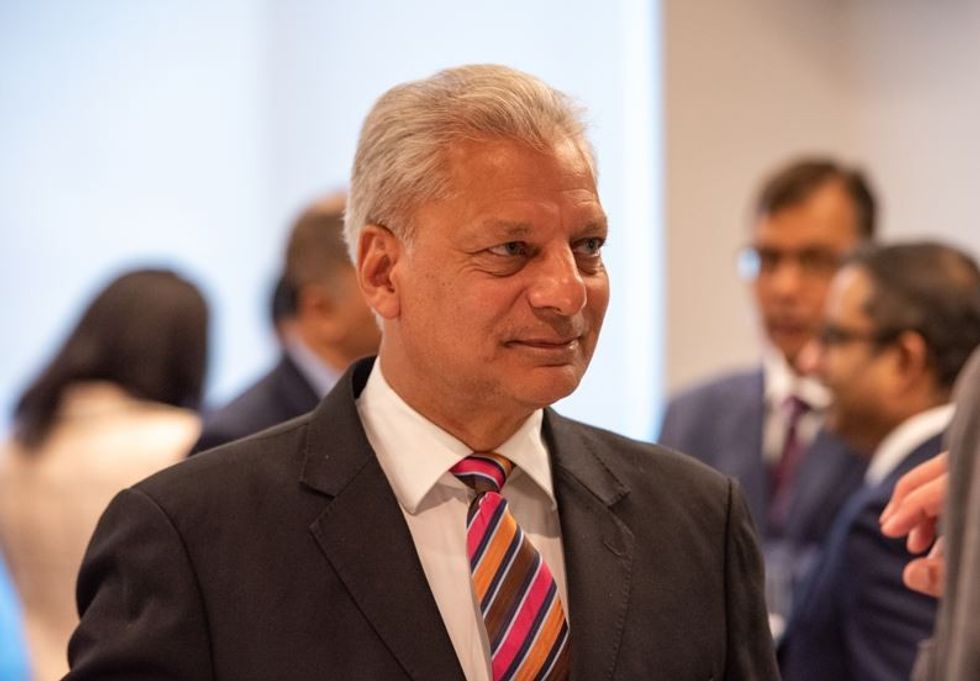
One day, she went to her CEO and said she would quit PepsiCo after the latest presentation because she felt he had not supported her enough.
To this day, Nooyi said she did not know what her boss did after she threatened to leave, but within hours those same colleagues were supportive of her and her ideas.
So, how did she deal with people who were not supportive or did not deliver what she wanted?
“First of all, you never let somebody go because they didn’t do what you wanted them to do,” she told the audience.
“You give them feedback and say, ‘Look, I expected this deliverable, this quality, on this date, and you didn’t do it.
“‘Let me tell you what was lacking in the product you delivered to me, and I wouldn’t like to see that happen again.’
“Then you watch them, you give them a little bit of help to get to the next project and see if they can deliver.
“If they don’t ask for help, and they don’t deliver what they are supposed to, then you tell them that they have a couple of choices.
“They can go down a level and work their way back up, or they can go out. Their choice, but if they don’t pick one of the two, then you tell them, ‘Look, I think you’re better off in some other place.’”
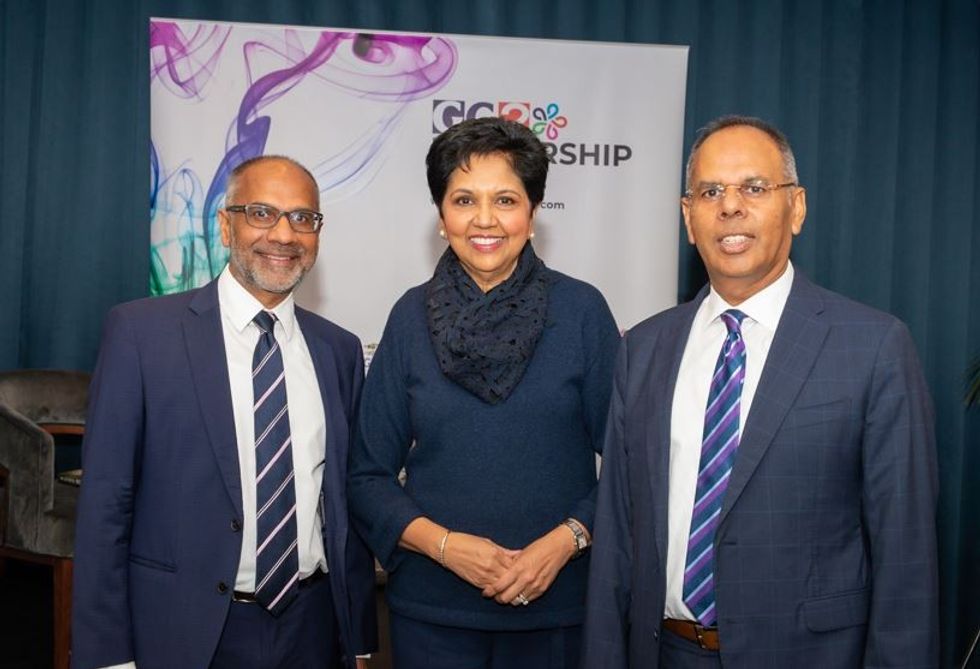
In the book, the former global business leader described how one white boss had rented a house in the US, but offered it to her when she could not find suitable accommodation for her family.
But the landlord said it was no longer available, in a clear case of racism. Yet in her memoir, Nooyi skirted around the racism that she faced, and during the hour-long conversation last week, she was equally clear that focusing on it was unproductive.
“I had the support of this incredible boss,” she explained, because he too refused to rent the property after what happened to her.
“At that point, you’ve got to decide which battle you’re going to fight at that point. I felt it was their loss. If they’re not going to give it to somebody who’s going to pay their rent on time and extraordinary rent on time, it’s their loss.
“You have to be careful to define the country [US] on the 95 per cent of the people that are wonderful, not the five per cent that are not.
“So, I focus on the 95, and my journey has been made possible by the 95.”
Nooyi paid tribute to the male bosses who mentored her. But when challenged on whether they merely mentored her or truly championed her, she responded, “I think the biggest difference is that mentors not just give you advice, they actually actively pull you up.
“They look for opportunities for you, promotion opportunities, place you there, and make sure you’re successful in that new job. They create the environment for you to be successful.
“That’s what Norman [Wade] did in spades. Even when I was leaving (India for the US), he said ‘Going to the United States is a better choice for you. Even though you’re going to leave my company, that’s a better choice for you.’
“We have to earn it. It doesn’t come by itself. But once you get a supporter, hold on to them for dear life, because they’re very few and far between.”
Watch Indra Nooyi in conversation at youtube.com/watch?v=1EhJ5qANgk0

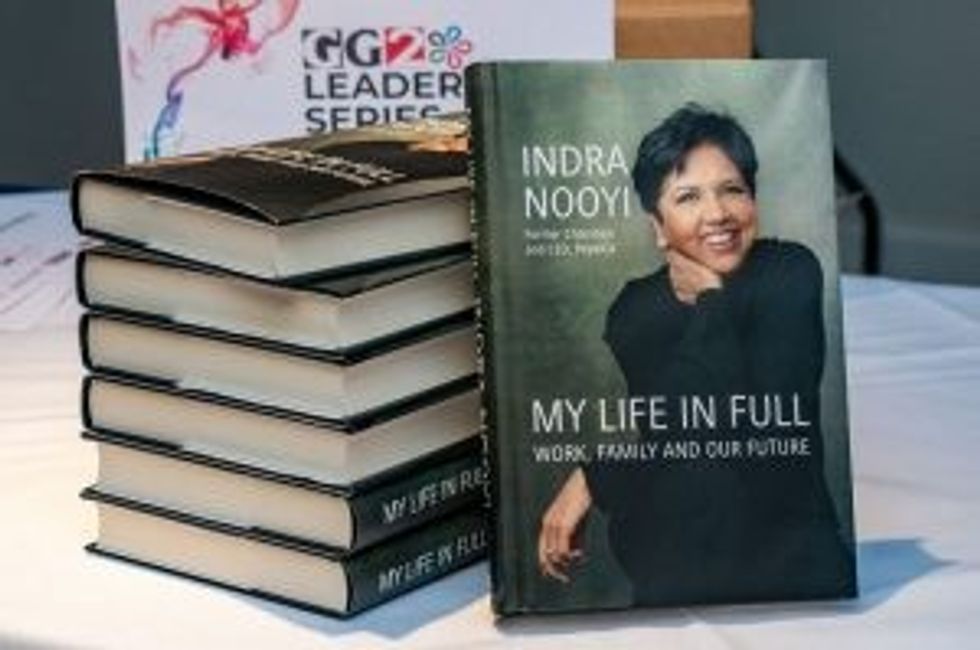


















 Damian Talbot
Damian Talbot